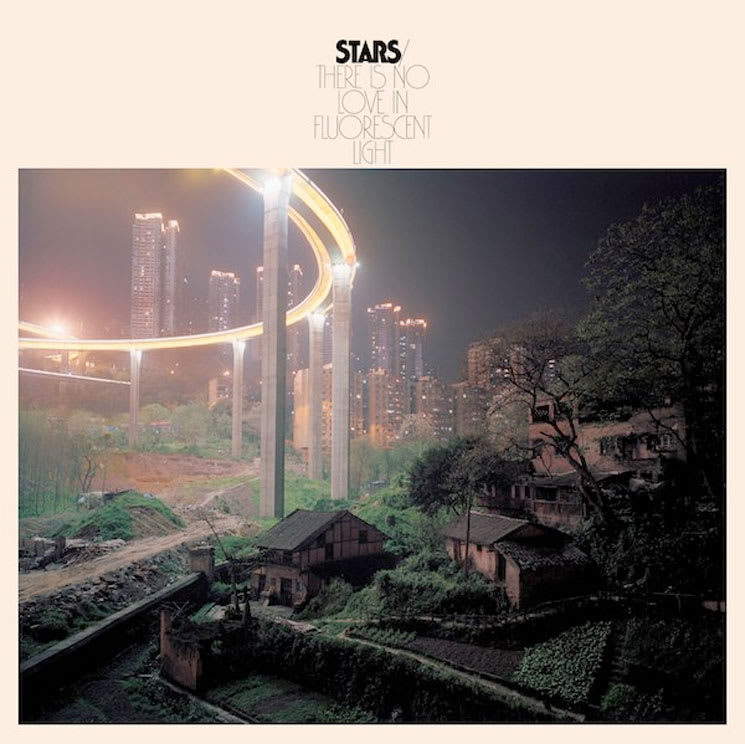Nearly three years to the release day of their last full-length, 2014's No One Is Lost, Montreal's Stars have gifted listeners There Is No Love in Fluorescent Light. The record marks the band's first time entrusting their sound to producer Peter Katis, known for his work on seminal Interpol and National records, who has guided the band in creating some of their finest work.
Co-singers Amy Millan and Torquil Campbell take on the relationship they have written about extensively on tracks such as "We Called It Love" and "Losing to You." The latter is immersive from its first note, placing the listener into a quiet nighttime scene in which the characters posit a question: "[it's] just enough to know you love me, baby, is it not enough to know I care about you?" The song grows into slow synth-pop, accentuated by bass and careful orchestration. It elongates to become quintessentially Stars: cinematic, heartbreaking and true.
The album's core shows the band refining their music, mixing their recent dance-oriented work with the orchestral pop of previous years. Millan shines on "Real Thing," her self-described "pop song pepper spray" that puts possessive men in their place. Campbell sings of isolation on the celebratory pop of "Alone," delivering one of the record's best lines: "I've got the keys and I've got the car, don't make me need you when I've come this far alone."
"California, I Love That Name" is a moment of sheer beauty, while "The Maze" begins with sinister instrumentation before Campbell affirms, "I fell into a dream!" There's a sense of bombast to the album that jumps out amongst the gentle tracks, the band staying true to "[making] the small things big and the big things a chorus," as Campbell describes in the album's press release.
There Is No Love in Fluorescent Light is the sound of a band that know themselves. Stars speak to the truths we grapple with, and the internal nature of our emotional experiences. It's a gift to hear this realized.
(Last Gang)Co-singers Amy Millan and Torquil Campbell take on the relationship they have written about extensively on tracks such as "We Called It Love" and "Losing to You." The latter is immersive from its first note, placing the listener into a quiet nighttime scene in which the characters posit a question: "[it's] just enough to know you love me, baby, is it not enough to know I care about you?" The song grows into slow synth-pop, accentuated by bass and careful orchestration. It elongates to become quintessentially Stars: cinematic, heartbreaking and true.
The album's core shows the band refining their music, mixing their recent dance-oriented work with the orchestral pop of previous years. Millan shines on "Real Thing," her self-described "pop song pepper spray" that puts possessive men in their place. Campbell sings of isolation on the celebratory pop of "Alone," delivering one of the record's best lines: "I've got the keys and I've got the car, don't make me need you when I've come this far alone."
"California, I Love That Name" is a moment of sheer beauty, while "The Maze" begins with sinister instrumentation before Campbell affirms, "I fell into a dream!" There's a sense of bombast to the album that jumps out amongst the gentle tracks, the band staying true to "[making] the small things big and the big things a chorus," as Campbell describes in the album's press release.
There Is No Love in Fluorescent Light is the sound of a band that know themselves. Stars speak to the truths we grapple with, and the internal nature of our emotional experiences. It's a gift to hear this realized.
